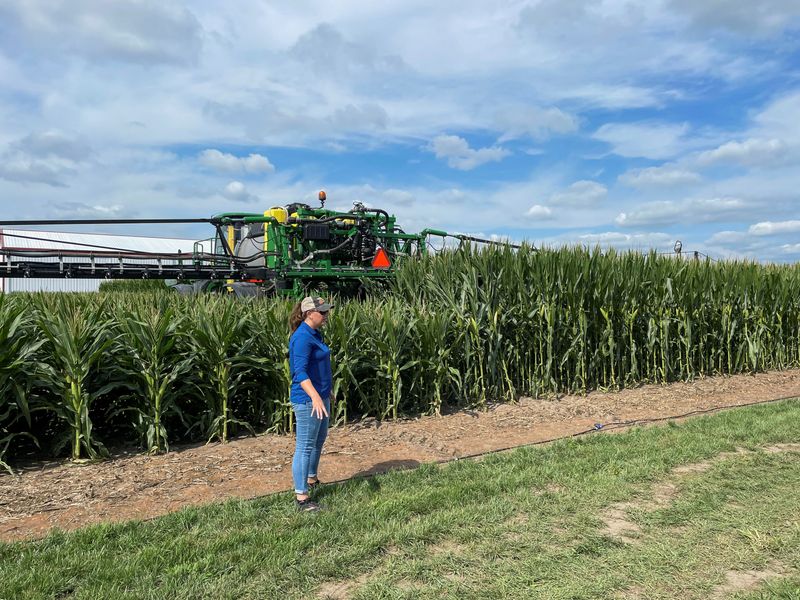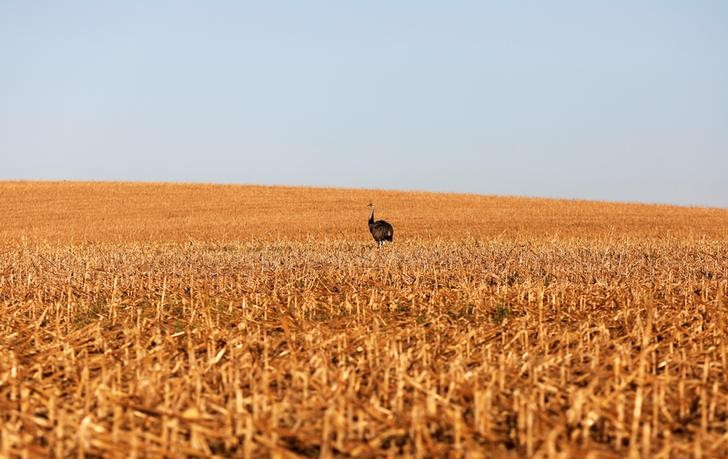By Renée Hickman
CHICAGO (Reuters) – Bayer (OTC:)’s Preceon short stature variety of corn has been shown in some tests to withstand winds of up to 75 mph (120 km per hour), the company said on Tuesday, but could not withstand against wind speeds of more than 160 km per hour. .
That means corn can still be damaged by extreme weather, like the derecho storm that hit the heart of the Corn Belt in August 2020, causing $11 billion in damage, according to the National Oceanic and Atmospheric Administration. Bayer said other small-statured corn survives winds of up to 50 miles per hour.
A derecho is a type of large, long-lived thunderstorm with damaging straight-line winds. Scientists say extreme weather events are becoming more common due to global warming.
“After 160 km/h there is nothing left,” Bob Reiter, head of research and development, crop science at Bayer, told Reuters.
At an event in Chicago, the company said 390 farmers grew the Preceon variety on about 35,000 hectares in the US and Europe in a 2023 trial of the conventionally grown version of the corn.
Bayer plans to release a genetically modified version of the corn in 2027 and is working on a gene-edited version “to address different global markets.” Bayer says the corn will reduce yield losses due to extreme weather because it has less height to catch wind.

Events like the derecho storm that hit the U.S. Midwest could become a bigger problem as warmer temperatures linked to climate change escalate, said Nick Vita, a forecaster at Commodity Weather Group.
“Very warm temperatures can help not only with the intensity, but also the duration of these systems,” Vita said.


